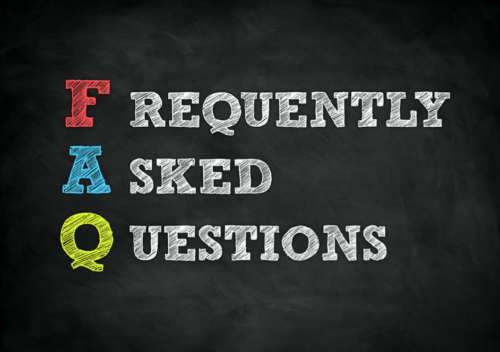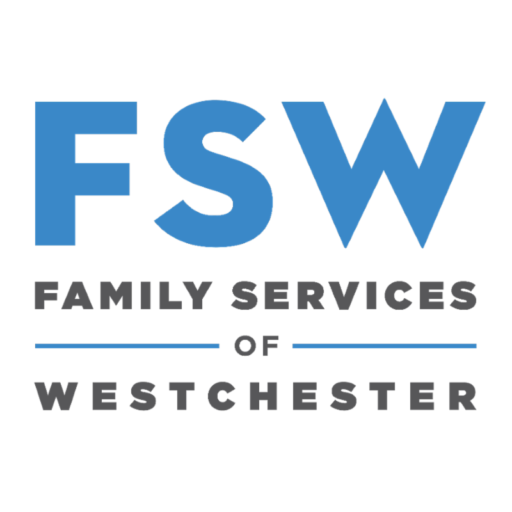FAQs About Therapeutic Foster Care
Listed below are some of the most frequent questions potential foster parents ask us about fostering in general and our FSW Therapeutic Foster Care program specifically.
If you don’t see your question or need a more precise answer for your personal situation, please feel free to reach out to
Beth Bernardone, Program Director
(914) 305-6891
beth.bernardone@fsw.org

1. What is therapeutic foster care and who are the children we serve?
Family Services of Westchester’s (FSW) Therapeutic Foster Care (TFC) program offers loving, stable homes to children who, for various reasons, are unable to live with their birth parents or family members at this time.
Our program serves children ranging in age from newborns to 21 who live in Westchester, Rockland or Putnam Counties. Our youth come from all socio-economic and ethnic backgrounds but what they have in common are special behavioral, social or emotional needs.
FSW offers a full range of supports to address each child’s needs, with the overall goal of strengthening the relationship between birth parents and their children. Therapeutic foster parents assist with family reunification where possible or prepare their foster child for adoption or independent living. It is common— but by no means expected or required — for a child to be adopted by his or her foster family.
2. How is therapeutic foster care different from traditional foster care?
The primary factor that distinguishes FSW’s Therapeutic Foster Care program from traditional foster care is the extensive training and professional support that our Family Specialists provide to our foster care parents.
Family Specialists serve as advocates for the foster child and family to ensure that they obtain the services they need. Therapeutic Foster Care parents receive in-home weekly support from the Family Specialist. Children in the Therapeutic Foster Care program attend weekly individual therapy in their home communities, as well as bi-weekly group therapy sessions at Family Services of Westchester.
3. What support services will I receive as a therapeutic foster parent?
As a therapeutic foster parent, you will always have full support from our team and agency, Family Services of Westchester:
- You will receive specialized parent skills training
- You will receive tax-free daily compensation, as well as a quarterly clothing allowance for the child(ren) in your home.
- You will have 24/7 phone support from our program staff.
- Your foster child will be seen by our own program’s own in-house clinician.
- You and your foster child will be supported by our program’s own dedicated family specialist who sees the children and foster families weekly and coordinates with schools and doctors to make sure everything is going smoothly.
- You will receive respite services.
4. What are the requirements to become a therapeutic foster parent?
To become a therapeutic foster parent, you must be:
- Age 21 or older
- A legal resident of the United States
- Fingerprinted and cleared by the New York State Department of Criminal Justice
- Be cleared by the New York State Central Registry of Abuse and Maltreatment, which is maintained by the New York State Office of Children and Family Services
5. Can I be a therapeutic foster parent if I live in an apartment or townhouse?
Yes, there is no requirement that a foster family live in or own a house, only that a child in therapeutic foster care must have:
- A bedroom that is sufficiently large for him or her to live in. The bedroom must include a closet, a dresser, and a bed with clean bedding for the child.
- The home must have more than one bathroom if there are 5 or more people living in the home.
- Your foster child can share a bedroom with your own child as long as the children are of the same sex, of similar age, and the bedroom is large enough for the beds to be at least three feet away from each other.
6. If I’m single, can I still become a therapeutic foster parent?
Yes, single individuals can definitely become therapeutic foster parents, provided they have sufficient flexibility with their work and personal schedules to accommodate their foster child’s schedule. That schedule typically includes weekly therapy appointments at one of our Family Services of Westchester locations, potential weekly or bi-weekly family visits, and often, medical appointments.
Foster parents who are single should be prepared to identify a friend, family member, and/or neighbor to be a backup resource to watch the child in care if they need help.
7. If I become a therapeutic foster parent, does my spouse or partner have to participate in the training and certification process?
Yes, both of you need to participate, since both of you will be responsible for the care and well-being of the child placed in your care.
8. Can I become a therapeutic foster parent if I work full- or part-time?
Yes, many foster parents work full-time or part-time while having children in care in their homes. However, it is important to have supports from family and friends that are approved by the agency.
9. Can a family member watch my foster child if I have to work late?
Yes, you can definitely have a family member watch the child in care if you need to work late, attend a meeting, or go somewhere you cannot bring the child. The family member must be cleared by the state central registry because they are considered a backup resource for the therapeutic foster parent. The family member must also provide a copy of their driver’s license. If the child will be spending a good amount of time in your family member’s home, we must inspect the family member’s home to ensure safety for the child.
10. Can I hire a babysitter for a foster child in my care?
Yes, you can most definitely hire a babysitter for a child in care. Hiring a babysitter is similar to having a family member watching the child, but babysitters do not need to be fingerprint cleared. The babysitter would come in for an interview with staff from our program and complete a State Central Registry form. This form is an online clearance form used to clear the babysitter through the NYS Central Registry of Abuse and Maltreatment.
11. What happens if my foster child gets sick?
All children in therapeutic foster care are covered under New York State Medicaid. If your foster child needs to miss school because of an illness, you will need to be responsible for making arrangements. This could mean being home with the child until he or she is healthy and can return to school.
12. How long is a child’s typical stay in therapeutic foster care?
The length of time varies case by case, from a few days to a week to a few years. On average, the typical length of time is 12 to 18 months.
Reunification occurs when it is safe for a child to return home. If reunification is not in the child’s best interests or possible due to safety concerns, then adoption or independent living will be explored. Therapeutic foster families often adopt their foster children, but that outcome is by no means expected or required.
13. Can I choose which child I foster?
Yes, therapeutic foster parents can specify the age and gender of a foster child, as well as the developmental, emotional, and/or intellectual disabilities or special needs they feel equipped to handle.
14. What is the matching process?
We make our therapeutic foster care placements through a careful matching process. We never just “go down the list” to make our assignments.
Once you become trained and certified as a therapeutic foster parent, we will call you when a potential placement that matches your criteria becomes available. At that time, we’ll share the child’s needs with you and give you the opportunity to decide if that particular match would be a good fit or if you want to wait for another one.
15. What is emergency placement?
When children must be removed from their families for safety reasons, those situations often occur on an emergency basis with very little time to plan. When we discuss your matching criteria, you can indicate whether you would be open to an emergency placement and if so, you will be on that special list in addition to the list for regular placement.
16. What kind of behaviors am I likely to see from my foster child?
Children come into Therapeutic Foster Care because of psychological and/or physical trauma they have experienced. Many are medically fragile as well, with conditions such as diabetes or kidney disorders.
The children who come into our care typically have developmental, social, and/or emotional disabilities, although the degree of special needs varies based on the child.
Some examples of diagnoses we see with our therapeutic foster care children are ADHD, ADD, conduct disorders, learning disabilities, depression, anxiety, Autism, Reactive Attachment Disorder, and PTSD.
We’ve noticed over the years that many of our most successful therapeutic foster parents already work in professions such as medicine, social work or teaching where they’ve had experience with diagnoses like these and don’t find them intimidating.
However, even if you do feel a little overwhelmed reading this, rest assured that we will train and support you so that you feel confident every step of the way.
17. Now that I understand the process better, what next steps do I take to become a therapeutic foster parent?
First, give yourself a pat on the back for being an amazing person with an open and compassionate heart. You will be transforming the life of a child and we appreciate you more than you can possibly imagine.
Next, call or email:
Beth Bernardone, Program Director
(914) 305-6891
beth.bernardone@fsw.org
Beth will answer any questions you may have and schedule a convenient time to meet in person. At that meeting, she will walk you step by step through the training and certification process and get you started on the exciting path to becoming a New York State-certified Therapeutic Foster Parent!

